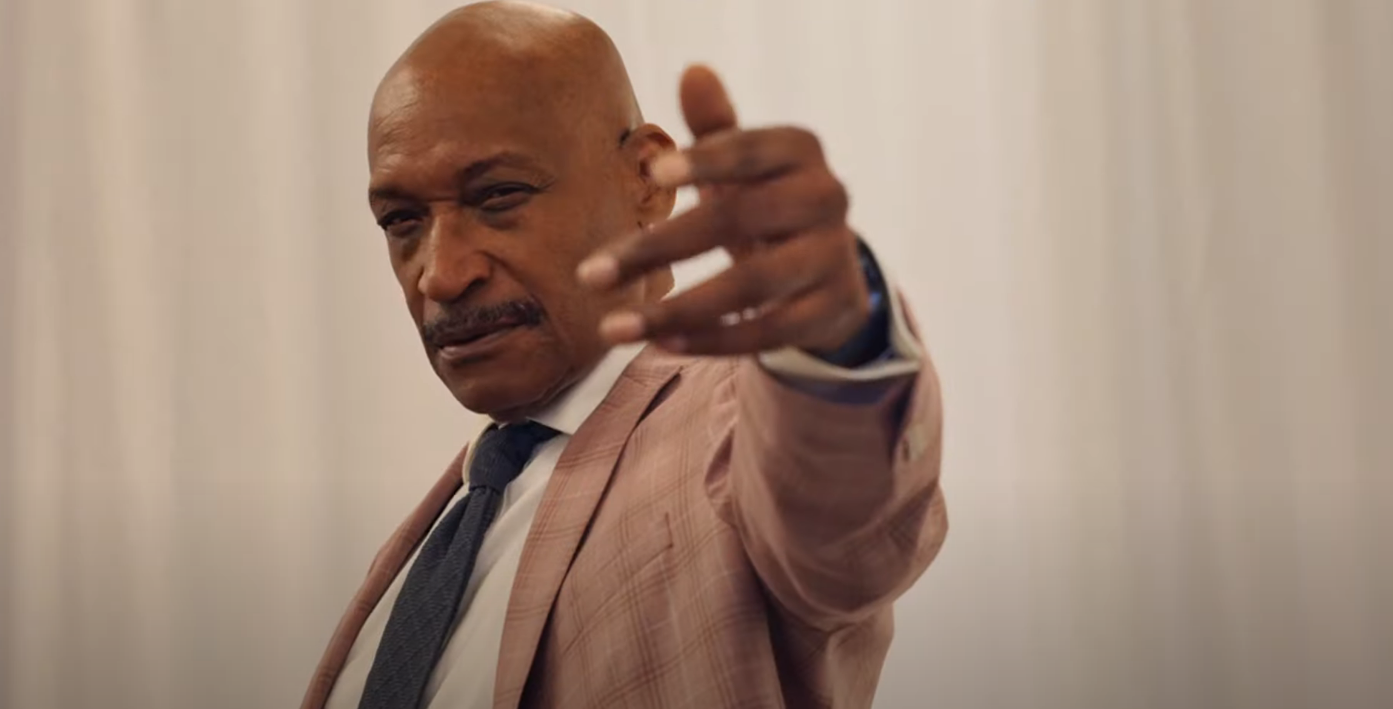What to Watch Verdict
'Horror Noire' suffers from many recognizable horror anthology hurdles, a little more than the compeition.
Pros
- +
🕷️ Puts Black horror into focus
- +
🕷️ "Sundown" shows what 'Horror Noire' is capable of
- +
🕷️ A few highlights
Cons
- -
🕷️ It's too long for only six segments
- -
🕷️ Quality is not consistent
- -
🕷️ Performances are not equal
Shudder's Horror Noire — a horror anthology rooted in Black storytelling — isn't as spectacular as the documentary it's based on. Horror Noire: A History of Black Horror is a definitive horror documentary, while Horror Noire lacks the same executed monumentality.
Segments in Horror Noire all gear toward the Black experience in a predominantly white America as a reflex to the pains and frustrations felt throughout interviews in the documentary. It's a worthwhile project on paper, but the running time of more than two hours works against short films that don't feel all that short (note that as a detriment). Expect the ground floor that most horror anthologies maintain, without an equally lofty ceiling to hit — the latter is more noticeable when highs aren't rebounding with a rocket upward.
At its best, Horror Noire confronts prejudice and xenophobic pasts (also presents) with an updated supernatural or thematic bend, as is cultural horror's proficiency. The segment "Sundown" very overtly manipulates the modern existence of Sundown Towns to mean something very different — or, at the least, as a cover for additional dangers.
At its worst? Horror Noire mismanages durations, represented in the ferocious end to "Bride Before You" that otherwise sleepwalks through its colonial pregnancy backstory with a few arachnid prop limbs operated off-camera. This low-budget effort lacks polish, which attributes to an unfortunate dullness missing standout effects or much thrill-seeking tension.
I want to continue to single out "Sundown," written by Al Letson and directed by Kimani Ray Smith. Volunteers are canvassing the West Virginian suburb of Eventide to swing votes toward their Black senate hopeful. The town appears to be a rural snooze until a Black couple stumbles upon rusted Sundown Town signage. The community's leader Erebus (Peter Stormare) assures Shanita (Erica Ash) and Marcus (Tone Bell) the sign about Black citizens vacating after sundown is just an ugly blemish on Eventide's history — then we find out why locals only come out after dark. It's a poorly hidden secret that's still a clever remix on Sundown Town threats used by the only Black Eventide resident, Samuel (Lavell Crawford), as a warning against Erebus' nightly activities. Plus, there are some sharp lines between Marcus and Shanita as the former tries to find the good in white folk who then use the "n" word — a particular quip where she zings him, "Alright, go ahead Obama," stands out. So does the third act's turn into action-horror territory that's the most fun you'll have in Horror Noire.
Joe West's "The Lake" has its moments as a siren inspiration, written by the esteemed Tananarive Due and her husband, Steven Barnes. Schoolteacher Abbie (Lesley-Ann Brandt) moves to a remote lakeside estate to escape some teased trauma from her past, where townies give her a simple warning — don't go swimming. Abbie indeed goes swimming, starts paying one of her students to perform handyman fixes around her new place and the story turns into a game of seduction as Abbie transforms both psychologically and physically. It's a riff on familiar seafaring folklore that sells its lurid humidity and Abbie's breakdown as tell-tale signs of aquatic horrors seep into frame. A solid segment that starts things off before complications become ever evident.
All remaining chapters buckle under the weights of either lackluster visuals, overdrawn storytelling that becomes lifeless or poor performances. "Brand of Evil" sees a Black graphic designer not asking questions about the very inappropriate symbols he's drawing for an anonymous Caucasian donor who pays insane prices, which is stunted by these killer pieces of animated cloth and predictability down to lacking makeup blends on a demon's costume. "Bride Before You" shoots for eight-legged creeps but suffers thanks to a spinster's tradeoff for motherhood that languishes in a sleepy narration before getting to the "good part" of a hissing monster hidden completely by shadows. I'll admit, "Daddy" actually does an admirable job turning stereotypes about fatherhood into a doppelgänger standoff that's a bit freaky on second assessment. The same can't be said about "Fugue State" after another evaluation. Malcolm Barrett, Tony Todd and Rachel True all deserve better than ... well, everything shown.
The latest updates, reviews and unmissable series to watch and more!
Horror Noire underwhelms and meanders as a horror anthology that's too much of a mouthful. Its inception is an evolution that the horror genre should continue, but ideologies alone do not equal a stunning product. I found myself exhausted by most segments that aren't adept in delivering messages and entertainment in equal breaths. That's a sentence typed with disappointment, I assure you. Horror Noire is proper representation in an unfortunate package — and still might be meaningful nonetheless, which should not be a forgotten hope.
Horror Noire is now available exclusively on Shudder.
Matt Donato is a Rotten Tomatoes approved film critic who stays up too late typing words for What To Watch, IGN, Paste, Bloody Disgusting, Fangoria and countless other publications. He is a member of Critics Choice and co-hosts a weekly livestream with Perri Nemiroff called the Merri Hour. You probably shouldn't feed him after midnight, just to be safe.


